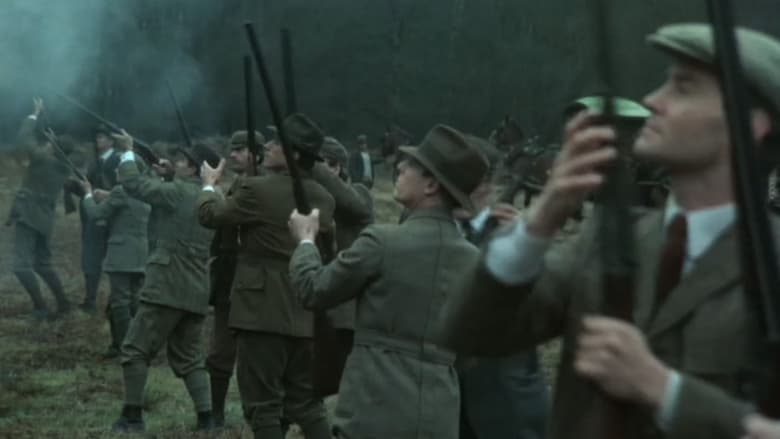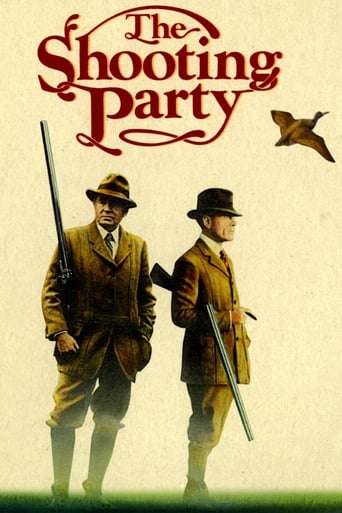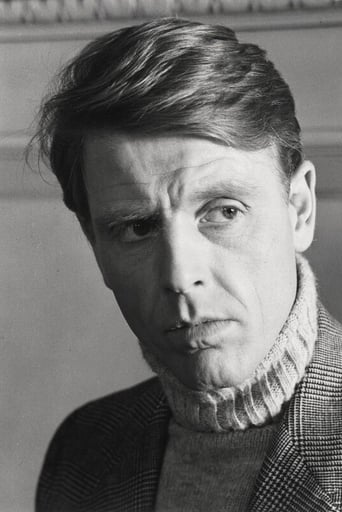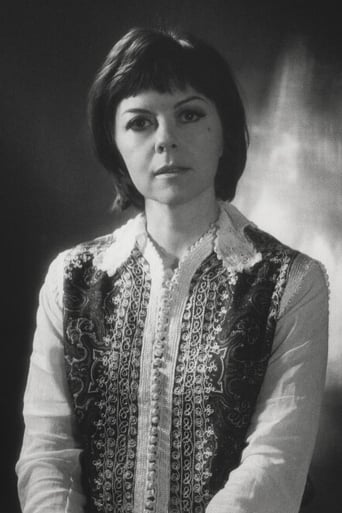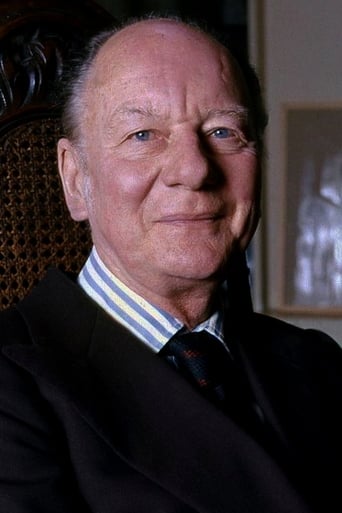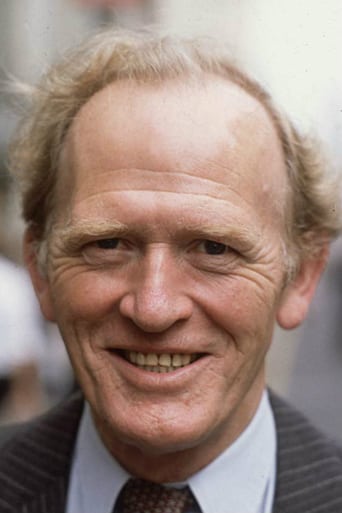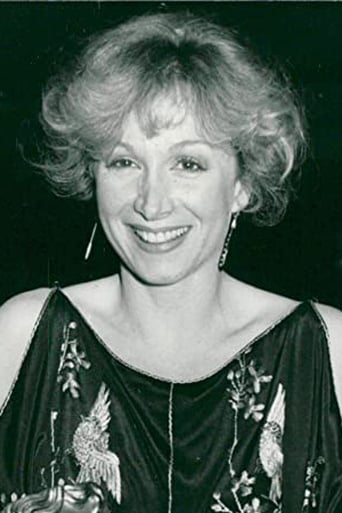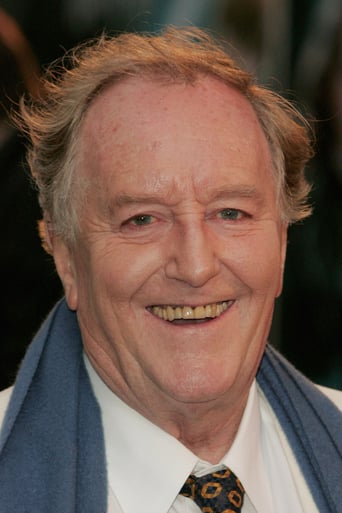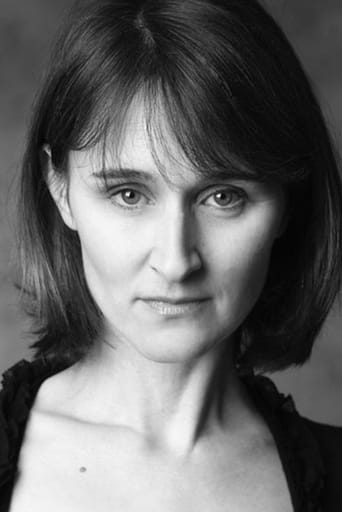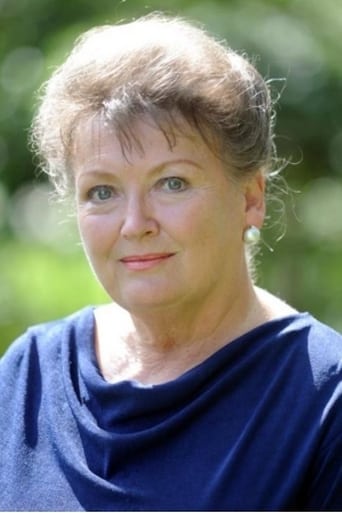1913, shortly before the outbreak of WWI. A group of aristocrats gathers at the estate of Sir Randolph Nettleby for a weekend shoot. As the terminal decrepitude of a dying class is reflected in the social interactions and hypocrisy of its members, only world weary Sir Randolph seems to realise that the sun is setting.
Reviews
Thanks for the memories!
Simply Perfect
It's simply great fun, a winsome film and an occasionally over-the-top luxury fantasy that never flags.
This is one of the best movies I’ve seen in a very long time. You have to go and see this on the big screen.
THE SHOOTING PARTY, based on the novel by Isabel Colegate, is one of those low-budget films that tends to be characterized as a "heritage film," offering incidental pleases to viewers who are prepared to make the effort, but perhaps not pitched at general audiences.Nothing could be further from the truth. Alan Bridges's work is both a technical and thematic masterpiece, brilliantly making use of cinema's resources to comment on British insularity both before and after World War One.The first few sequences pass by exceptionally quickly: few of the guests at Sir Randolph's (James Mason's) home have time to talk with one another, as they are perpetually occupied in dressing for dinner, eating food, and discussing the next day's hunting. We wonder why they seem so desperate, especially in view of their privileged lifestyle. The answer emerges gradually; they are pathologically incapable of expressing their true feelings. Lord Gilbert and Lady Aline (Edward Fox, Cheryl Campbell) are unhappily married yet stay together for the sake of form. Lord Bob (Robert Hardy) makes himself agreeable to everyone without saying anything of any value. They seem hell-bent on preserving what they perceive as the "old values" that made England great in the Victorian era without in the least understanding how worthless they have become.The "Hunting Party" of the title refers to a three-day shooting festival, where the aristocrats indulge in hunting just for the sake of it, loyally supported by Sir Randolph's band of servants. No questions its morality, save for lifelong pacifist Cornelius Cardew (John Gielgud). Director Bridges slows the action down quite significantly here, allowing viewers to acknowledge the regular - and uncomfortable - series of gunshots accompanied by tight pans of the birds falling dead. The parallels between such sequences and the forthcoming conflict in World War I are obvious; only in the future it will be human beings rather than birds who will perish.The action attains a human dimension when we discover that the little boy Osbert (Nicholas Pietrek) is desperate to save his pet duck from the carnage. As he wanders desperately about the dawn- misted landscape before the hunt is about to start, we realize just how destructive humanity can be as they disrupt the balance of nature for their selfish pleasures.Although Bridges does not exempt his characters from criticism, he manages to introduce a Chekhovian element into the film's latter stages. While no one can ever contemplate a future different from the past, the aristocrats are in a sense victims of circumstance, lacking both the power and self-awareness to change their lives. This element is emphasized in a highly poignant moment as Sir Randolph vainly tries to offer succor to one of his servants (Gordon Jackson), who has been accidentally shot, but finds himself emotionally incapable of doing so, and bursts into tears quietly.Released only three years after the Falklands Island invasion of 1982, widely celebrated at the time as a great victory for British pride, THE SHOOTING PARTY offers a chillingly downbeat interpretation of jingoist attitudes that prove more destructive than beneficial.
The Shooting Party is an elegant, stately film with radical undertones very much represented by the John Gielgud's character.However this is James Mason's film, his final movie before his death and to think he was a last minute replacement for Paul Scofield who had got injured on set and had to pull out.Mason plays Sir Randolph who holds a weekend shooting party in his estate with fellow aristocrats from home and abroad. There are strict rules of conduct from the way you dress, the way you eat, the shoot itself and you conduct yourself in front of servants.What we see is petty rivalries, loveless marriages, discreet affairs and the foreign aristocrats showing an arrogance to the lower orders.The setting is Autumn 1913, they do not know it but it will be the last shooting season before the outbreak of The Great War. Sir Randolph senses that the country is changing but not yet realising at what great extent. Look at the sincere way he talks to Gielgud's pamphleteer who objects to the shooting and proclaiming animal rights. It is the servants and the lower classes who seemed to be more conservative and think things will always remain the same.The bird shooting scenes anticipates the slaughter that will follow in the trenches a year later, the tragedy that occurs signifies a change in the rule of the games and in the final credits we are informed that several of the characters died in The Great War.It is easy to dismiss The Shooting Party as another heritage film that was popular in the 1980s and 1990s. It has a bite to it as well as being uniformly well acted.
While the whole film is beautifully accomplished on all levels, acting, directing, sense of time and place, the scene between James Mason and John Gielgud, which takes place during a shoot, reveals acting that has gone beyond acting. It is one of the most exquisite scenes in the history of the cinema. Mason and Gielgud are perfect.
The Shooting Party is set in 1913, which is not very long ago, and yet is another world. This was the last year of the old world, and the start of the modern world. The opening narration by James Mason sets the theme: that the world of the haves and have-nots is doomed, and that the future holds great change.This was Mason's last film, and his was a part very well suited to him. He is the great patriarch, head of the family, and benign chief of the great estate. He is not a soppy fool, but he is kind and means well to all. He invites many aristocrats to his estate for a few days of shooting, and these arrive, with their servants.In the house, then, are representatives of much of the world at that time: the upper classes, some British, some foreign, and the lower classes, some servants, some local rustics who will be the beaters for the shoot. The film then shows us how they are all behaving.Both the upper and the lower classes are stuck in their ways, though if anything, it is the upper class which questions whether this is the way things should be. When the shooting pauses for tea, the posh folk sit elegantly but uncomfortably in a clean white marquee, and drink from china, while the beaters look far happier drinking from mugs from a communal urn and chatting amongst themselves.The foreign aristocrats are haughty, and annoy the British by referring to the beaters as "peasants". The British aristocrats are not happy. Two young idealists are in the agony of a forbidden love, others have sham marriages or petty rivalries.The world is one full of love, but much of it frustrated. A boy has a pet duck, which he fears will be shot. Mason has a liking for a local poacher whom he hires as a beater, despite the contempt which the hunt master has for the man. By the end of the film, you feel great liking and sympathy for many of the characters.To get the most from this film, some knowledge of history and British culture is required, but there is much to like in this film without these. The acting and dialogue are good, the setting atmospheric, and what is being said about the people of the time is so very fair. This film does not hammer home any of its points, but shows both the good and the bad in the characters, and lets the viewer decide.All through the film, our present-day knowledge of the slaughter to come in the churned mud of the Somme, Ypres, Paschendale and the Dardenelles stays with us, affecting the way we perceive every nuance. The film makers were clearly aware of this, and take full advantage of it.The ending is one of the most moving I know from any film. Simple, yet very effective.
Top Streaming Movies











